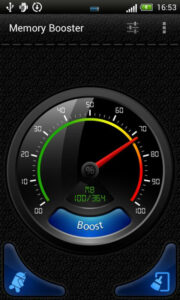
AbleCommerce
This is a continuation of my previous blog, Introduction to AbleCommerce Gold, and in this post I will explore one of the features of AbleCommerce Gold platform: the Merchant Dashboard. AbleCommerce Gold provides a rich feature set for the online merchant via the merchant administration portal. Using this interface, an e-commerce merchant can perform administrative functions to manage orders; process payments; maintain shipping providers; manage customers; and maintain an organized product catalog.
One
of the useful features of AbleCommerce Gold is its Merchant Dashboard.
The Merchant Dashboard is used to help you with the day-to-day
management functions of AbleCommerce administration. One can access the
Merchant Dashboard directly by typing in the administration uniform
resource locator (http://www.yourcompanyname/Admin)
or by navigating from the Admin link on the upper right hand corner
of any store page (see Figure 1.0 below) using an administrative
credential. A regular user will not see this additional link or button.
Figure 1.0 – Administration link
What is the Merchant Dashboard?
Once you are in the Administration site your default view will be set to the Merchant Dashboard as shown in the below figure.
Figure 2.0 – Merchant Dashboard
AbleCommerce
Gold Merchant Dashboard gives you a quick summary of what's going on in
your store by organizing your management tasks into an easy-to-use
interface. AbleCommerce Gold Merchant Dashboard is broken into the
following areas:
1. Activity Panel – View tasks related to :
- Daily Task Tab –default view of the Merchant Dashboard.
- Navigate Tab – displays additional administrative functions such as managing orders, users, catalog, inventory, website and marketing.
- Configure Tab – displays administrative options for managing your store and configuring your website settings.
- Reports Tab – displays available canned reports menu.
- Help Tab – displays system information and how to attain product and technical support.
2. Recent Orders Panel – Shows 5 most recent orders and order status.
3. Order Summary Panel – Shows the summary of all orders within the last 120 days.
4.
Action Items Panel – System warnings that advise you of action items
you should take a look at for example error logs or store settings that
are not completed.
5.
Software News Feed Panel – Displays news announcements from
AbleCommerce that relates to new product features and patches released
for upgrades or reported issues.
6. Quick access icons in the header, so you can easily access the most common management pages.
Conclusion
Using
the AbleCommerce Gold Merchant Dashboard feature helps the online
merchant by providing a secure view of the store’s daily common
administrative features to help manage alerts, orders, process payments,
shipping, customer’s and maintain product inventory. In my next post, I
will discuss the features of AbleCommerce Gold’s catalog and content
management system.


AbleCommerce - who, where and when?
In
spite of being heard of by relatively few users, AbleCommerce is in
fact one of the pioneers of the ecommerce, born in USA 20 years ago at
the dawn of the online shopping era. It was one of the first carts to
meet the demands of merchants and compete with giants like IBM and
Microsoft.
Nowadays, AbleCommerce offers an
all-round solution for online business- an ASP.NET based shopping cart
plus hosting for easy and quick start paid monthly, or a licensed
shopping cart to own it forever and host by your own choice.
Magento - the magestic solution
No
doubt, you’ve already heard of this celebrity shopping cart. Possessing
the largest market share and powering a staggering number of sites, it
is the leader on the ecommerce arena. Being totally open source and
completely free to download and use, Magento is also extremely feature
rich and allows you to do virtually anything with your store, setting no
limit to the customization opportunities. Written on PHP, it has won
the affection of thousands of talented developers who keep contributing
to their favourite shopping cart, creating numerous extensions and
themes.
There are a few things you should know
about this cart before you rush to download and set it up. First of all,
Magento is aimed at mid size and large businesses. For smaller stores
or startups, it would be an overkill, due to the multitude of options
and options of options where you can easily get lost. Also, it features a
steep learning curve, so this is not recommended for newbies or
merchants not willing to invest into a developer’s services. Finally,
troubleshooting is possible only via the community forums, as the
“traditional“ technical support is available only for Magento Enterprise
Edition.
Now, time to find out other details
about the carts in question so that you could finally make your
selection in this AbleCommerce vs Magento battle.
Appearance
AbleCommerce
offers over 20 themes that are easy to customize with no HTML
knowledge. Yes, the number is far from being impressive, but the
simplicity of customization and brandind your store looks can be some
kind of an excuse for the limited number of themes. You can also select
the layout from several default ones or create your own one via a
convenient editor.
With Magento, it is a totally
different story. It has a multitude of free and premium themes available
at various marketplaces to fit to your store image. However, unless you
are a seasoned pro, it is a complex task to install a new theme or even
customize it. There is a risk of breaking the store functionality.
Pricing
AbleCommerce
hosted version starts at $99 a month, so you get a ready to go online
cart, hosting and security taken care of. No transaction fees are
included. As to the support, you get it for free only the first 30 days
after the purchase. On the other hand, the lifetime license for the self
hosted version of AbleCommerce costs $1295 and includes free updates
for 12 months.
Magento, on the contrary, is free
to use. But in fact, starting the store on Magento means serious
spendings at the start when professional help is needed to get the shop
up and running, so be ready to invest. Afterwords, you may also need to
buy the additional extensions, but that is individual.
Functionality
AbleCommerce
presents most of the basic features the online store can need from the
start. A very important one is PCI certification out of the box, as
AbleCommerce is on the list of validated carts, meaning your customers
will be able to purchase safely from you.
It is also well equipped for mobile commerce, so you wont need extra
apps or paid access to get this feature. A rare and useful function of
AbleCommerce is the ability to subscribe for goods used regularly, which
is a great way to retain customers.
The overall
user friendliness and simplicity in operating the store add up to the
functionality, making AbleCommerce a viable choice. It also offers a
convenient system of ugrades available for a small fee to always keep
pace with the latest developments. However, the mechanism of upgrading
customized stores has not yet been worked out.
Magento
is much richer in terms of functionality out of the box, as well as
flexibility for further customizations. It features complex analytics,
robust reporting, wide SEO capabilities etc. Other than that, Magento
lets you live virtually any marketing or functionality dream. If the
desired feature is not present out of the box, you can find it among the
multitude of extensions, the number of which is impressive, or have the
code tweaked.




















